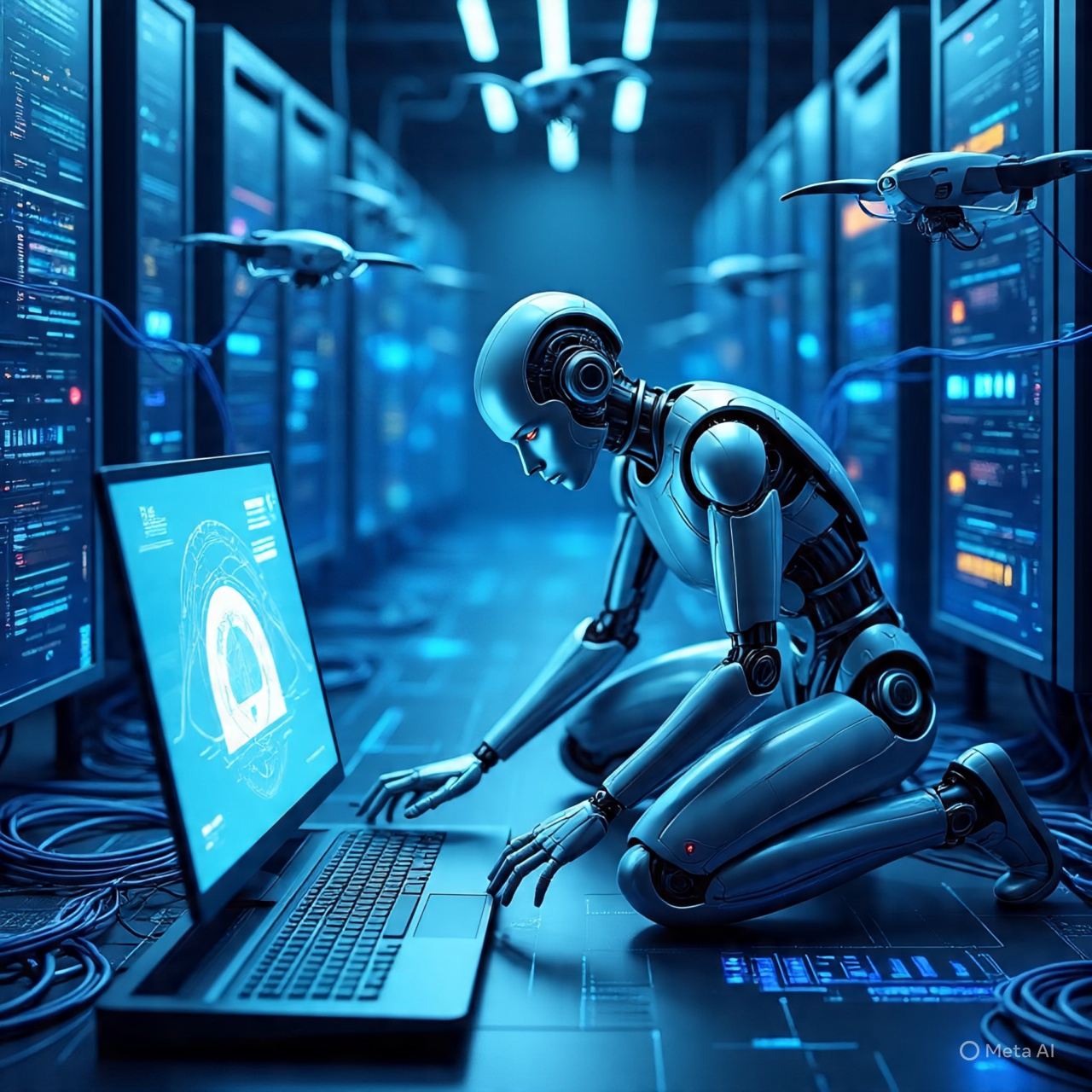The Impact of AI on Digital Marketing in 2025

Artificial Intelligence (AI) has been revolutionizing industries across the world, and digital marketing is no different. As we find our way through 2025, AI keeps transforming the way brands are interacting with their audiences, automating tasks, and analyzing data for better decision-making. This revolution is not only a trend it’s a paradigm shift in the marketing industry.
AI-Powered Personalization
Hyper-personalization is perhaps one of the most important impacts AI has had on digital marketing. Brands now no longer depend on mass messaging; they’re using AI algorithms to assess user behavior, likes, and demographics in real-time. The data is utilized for delivering content, product suggestions, and advertisements that strike a chord at a personal level. In 2025, software such as ChatGPT, GPT-4.5, and recommendation engines are further enhancing this process, enabling brands to build authentic one-to-one customer experiences.
Improved Customer Experience with Virtual Assistants and Chatbots
Chatbots driven by artificial intelligence have moved from simple query management. In 2025, chatbots are empowered with Natural Language Processing (NLP) and sentiment analysis capabilities that help them decode user intent, tone, and emotions. Virtual web and mobile site assistants can now converse like humans, offer immediate support, cross-sell products, and capture user feedback effortlessly. This does not only minimize response time but also increases customer satisfaction and loyalty.
Smarter Content Creation and Curation
AI tools are aiding marketers in creating high-quality content at a fast pace. AI-driven blog drafts to social media posts and scriptwriting for videos, content creation is at a quicker and more data-based pace. Marketers can utilize platforms such as Jasper or Copy.ai to create engaging posts, while ChatGPT aids in coming up with ideas and optimizing for SEO. In addition, AI assists in content curation by processing trending topics and recommending suitable articles or posts to post, entertaining audiences with less effort.
Predictive Analytics and Decision-Making
AI performs well in predictive analytics, allowing marketers to forecast consumer behavior, campaign performance, and market trends. Through analysis of large datasets, AI algorithms can predict which courses of action will work best, detect churn risk potential, and point out the areas in need of improvement. With this foresight, brands can make proactive, data-driven decisions instead of reactive tweaks. In 2025, predictive models are more precise than ever before, allowing companies to be at the forefront in a competitive landscape.
Programmatic Advertising
Programmatic advertising, driven by AI, buys and places advertisements automatically in real time. In 2025, these networks utilize sophisticated algorithms to process user data and decide the optimal placements, bidding strategies, and creative units. This translates to greater ROI and better targeting. AI assists in A/B testing and performance analysis and enables marketers to optimize campaigns continuously with minimal human intervention.
AI in Email Marketing
Email marketing has also been improved with AI. This includes subject line creation to send-time optimization, as AI-powered tools assist in tailoring emails for better engagement. In 2025, AI can track how the recipient engages with the email—opens, clicks, reads—the data can then be used to improve campaigns in the future. Machine learning algorithms also segment audiences more accurately, so the right message is delivered to the right individual at the right moment.
Voice Search and Visual Recognition
As smart speaker and voice assistant use grows, voice search optimization is an essential aspect of digital marketing techniques in 2025. Marketers use AI to comprehend how voice searches differ from written ones and redesign their SEO strategy accordingly. Visual recognition technologies are also improving user interaction with visual search, AR try-ons, and shopping via images. These AI-based innovations are defining new means by which users discover and interact with brands.
AI-Driven Social Media Strategies
Social media sites are using AI to study user behavior, identify trends, and refine content presentation. Marketers apply AI to determine optimal posting times, forecast viral content, and even track brand sentiment in real-time. Influencer marketing has also seen an improvement, with AI platforms assisting brands to identify real influencers through analyzing engagement rates and audience authenticity. In 2025, AI-created avatars and deepfake influencers are also being experimented with as experimental marketing tools.
Ethical Issues and Data Privacy
With the advent of AI, ethical issues related to data use and privacy gained greater prominence. Consumers are more conscious today of how their data is being gathered and utilized, making brands implement open AI practices. In 2025, regulatory standards are stronger, and brands need to be compliant with data protection regulations such as GDPR and changing AI ethics standards. Marketers need to balance personalization and privacy to ensure trust.
Conclusion: AI-Integrated Future
The use of AI in digital marketing is not a choice—it’s a necessity. From enhancing targeting and efficiency to improving user experiences and providing data-driven insights, AI is the foundation of today’s marketing practices. Looking ahead to 2025 and beyond, we can anticipate increasingly smarter automation, responsible AI uses, and innovative creativity that will redefine how brands engage with their publics. For online marketers, it is no longer an option but a requirement to remain abreast of AI tools and trends in order to succeed in the digital era.
.